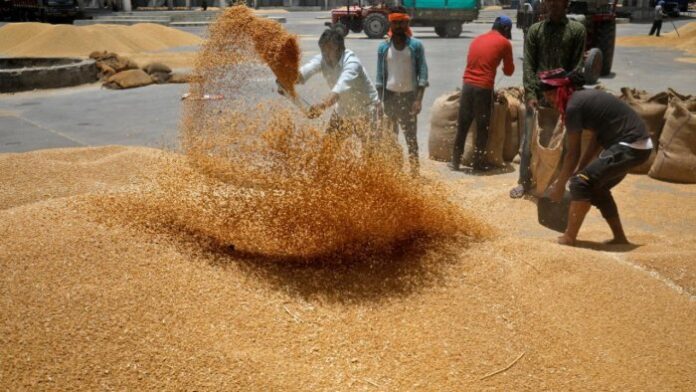ISLAMABAD: The persistent protests against the wheat price surge in Gilgit Baltistan (GB), reaching its 30th day, have triggered a proactive response from the federal government. While steps have been taken to ease the financial strain and address discontent, the core demand of reversing the recent price hike remains unmet, creating a complex scenario for both regional and federal authorities.
In a significant move, the federal government has given the green light to shift to 100% local wheat supply, aiming to alleviate the financial burden on GB. This strategic decision is anticipated to reduce the subsidy requirement by Rs 700 million for the current fiscal year and Rs 1.43 billion for the upcoming fiscal year, 2024-25.
However, the primary demand of the locals, seeking a complete reversal of the recent wheat price hike, is yet to be addressed by both the regional and federal governments, intensifying the ongoing protests.
A summary prepared for the Economic Coordination Committee (ECC) suggests approving a quota of 150,000 MT for the current fiscal year and 160,000 MT for the next fiscal year to counter potential food security challenges in GB. The summary, initially presented by the Ministry of Kashmir Affairs and Gilgit Baltistan, awaits discussion in the upcoming ECC meeting.
Chief Minister Haji Gulbar Khan and his team engaged in discussions with Caretaker Federal Minister for National Food Security & Research, Dr. Kausar Abdullah Malik, in Islamabad. Dr. Malik expressed commitment to supporting an agricultural revolution in GB, acknowledging the region’s unique potential for agriculture, commodities, and dry-fruits. The federal government, according to Dr. Malik, continues to supply 100% local wheat to GB and intends to do so in the future.
The Chief Minister expressed gratitude for the federal government’s efforts and discussed plans to further increase GB’s agricultural potential. Dr. Malik assured that directives would be issued to the Pakistan Agricultural Research Council (PARC) to form a team for this purpose.
Meanwhile opposition parties in the GB assembly are also actively collaborating with the Chief Minister to address the wheat crisis and seek intervention from the federal government.
Meanwhile, the Awami Action Committee has announced the next phase of protests, including a complete shutter-down strike in Skardu and region-wide protests starting Friday. The protesters not only demand the reversal of the wheat price hike but also improved electricity supply and the repeal of the finance bill.
In response to the protests, the GB government, previously proposing a hike to Rs 52/kg, has fixed the subsidised wheat price at Rs 36 per kilogram. Chief Minister Gulbar Khan asserted that this decision aims to stabilize wheat prices and ensure fair returns for local farmers.
The region’s dependency on subsidized wheat, initiated in the 1970s by Zulfiqar Ali Bhutto’s government to assist impoverished locals, faces challenges in meeting the increasing demand. The protests in 2017, triggered by attempts to cut the subsidy, underscored the delicate balance between economic sustainability and public welfare.
The proposed solution emphasizes exclusive local wheat supply to GB to stabilize the subsidy, with additional financial support from the Ministry of Kashmir Affairs. This ongoing effort signifies a commitment to balancing economic sustainability and public welfare in GB.
However, challenges persist as the impact of subsidized wheat on GB’s economy and agriculture necessitates a targeted subsidy approach, excluding the top socio-economic stratum. Previous exemptions for government servants above grade 17 and those earning over Rs 40,000 per month highlight the complexity of sustaining this subsidy amidst fiscal constraints.
As protests continue and discussions unfold, GB stands at a crucial juncture, grappling with the intricate dynamics of economic stability, public welfare, and the unique challenges posed by its mountainous terrain.




